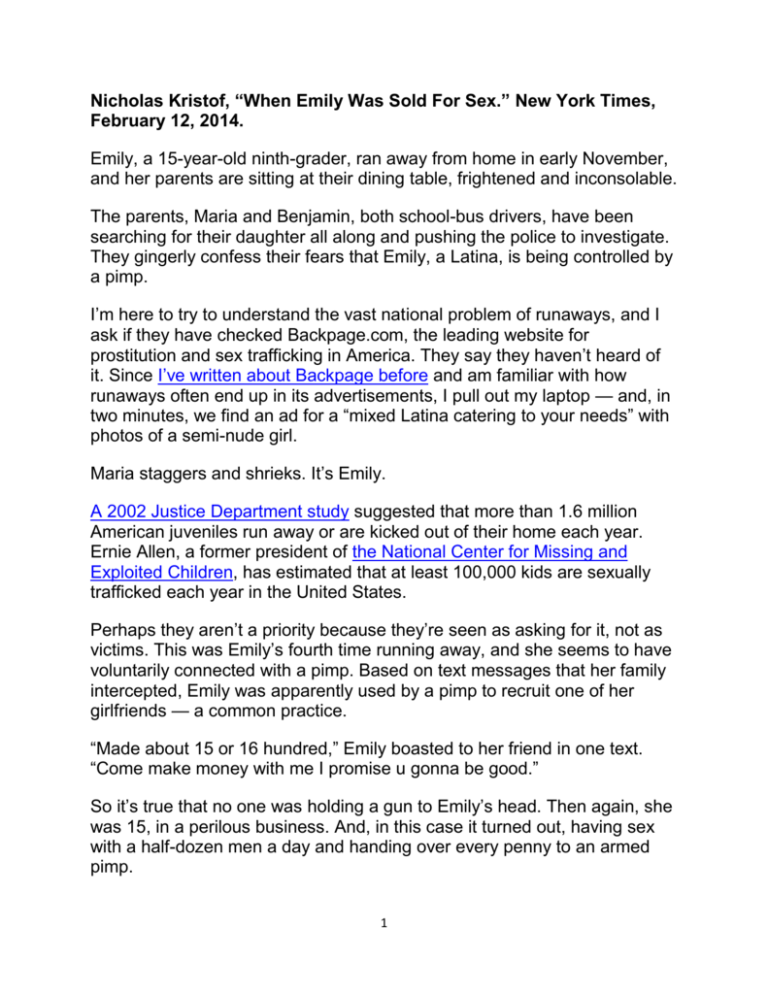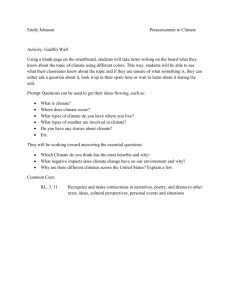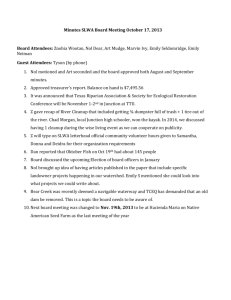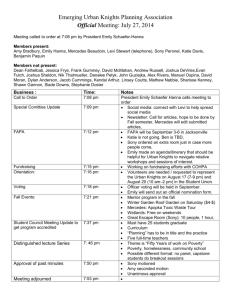Nicholas Kristof, “When Emily Was Sold For Sex.” New York Times
advertisement

Nicholas Kristof, “When Emily Was Sold For Sex.” New York Times, February 12, 2014. Emily, a 15-year-old ninth-grader, ran away from home in early November, and her parents are sitting at their dining table, frightened and inconsolable. The parents, Maria and Benjamin, both school-bus drivers, have been searching for their daughter all along and pushing the police to investigate. They gingerly confess their fears that Emily, a Latina, is being controlled by a pimp. I’m here to try to understand the vast national problem of runaways, and I ask if they have checked Backpage.com, the leading website for prostitution and sex trafficking in America. They say they haven’t heard of it. Since I’ve written about Backpage before and am familiar with how runaways often end up in its advertisements, I pull out my laptop — and, in two minutes, we find an ad for a “mixed Latina catering to your needs” with photos of a semi-nude girl. Maria staggers and shrieks. It’s Emily. A 2002 Justice Department study suggested that more than 1.6 million American juveniles run away or are kicked out of their home each year. Ernie Allen, a former president of the National Center for Missing and Exploited Children, has estimated that at least 100,000 kids are sexually trafficked each year in the United States. Perhaps they aren’t a priority because they’re seen as asking for it, not as victims. This was Emily’s fourth time running away, and she seems to have voluntarily connected with a pimp. Based on text messages that her family intercepted, Emily was apparently used by a pimp to recruit one of her girlfriends — a common practice. “Made about 15 or 16 hundred,” Emily boasted to her friend in one text. “Come make money with me I promise u gonna be good.” So it’s true that no one was holding a gun to Emily’s head. Then again, she was 15, in a perilous business. And, in this case it turned out, having sex with a half-dozen men a day and handing over every penny to an armed pimp. 1 A bit more searching on the Web, and we find that Emily has been advertised for sex in four states: Maine, New Hampshire, Massachusetts and Connecticut. The ads say that Emily (the name used in the ads, which is not her real name) is “fetish-friendly,” and that’s scary. Pimps use “fetish-friendly” as a dog whistle to attract deviants who will pay more for the right to be extra violent or abusive. “We don’t care what she did,” says Benjamin, in a shattered tone. “We just want her back.” The ads for Emily include a cellphone number to set up “dates,” and we pass the information to the authorities. The pimp’s phone number should make it easy to find the girl, so we wait to see what will happen. Maria is bitter that the police haven’t done more. She has been pleading for months for help, hounding the police — and now she finds that her daughter has been advertised in four states on multiple prostitution websites and no one seems to have checked or noticed. “I feel very strongly that it was racism,” Maria says. In fact, the Boston police force is admired nationally for its three-detective unit that fights human trafficking. This is the gold standard, yet, even here, a missing 15year-old girl seemed to slip through the cracks. Every day, more than 4,000 children run away or are kicked out of their home — and there’s negligible interest. We feel outrage when Penn State or the Roman Catholic Church ignore child sexual abuse, but we, as a society, avert our eyes as well. Partly the problem is that many see sex trafficking as serious only when the victim is dragged off in chains; we don’t appreciate Stockholm syndrome or understand that often the handcuffs are psychological. Attitudes are changing, just as they have toward domestic violence, but too slowly. There are failings here beyond law enforcement. You wonder about the men paying to have sex with a girl who looks so young. About the hotel clerks. And about why we tolerate websites like Backpage.com that peddle teenage girls. 2 A few hours after I sent police the link, officers located Emily in New Hampshire. Police raided a hotel, rescuing her and arresting a man, Andy Pena, 19, who, they said, was her pimp and took all the money she made. Police said that Pena was armed. Pena is in jail in New Hampshire; his public defender declined to comment. Emily is ambivalent about her rescue. She’s in a group home, getting support from other survivors of human trafficking through a group called My Life My Choice. She’s still rebellious, but it’s a good sign that she hugged her mom. Maria wept. Today Emily is safe, but there are hundreds of thousands of other runaways out on the streets. These are our kids, in danger. Shouldn’t they be a national priority? 3




